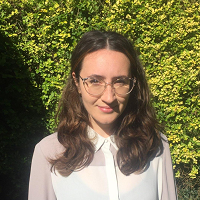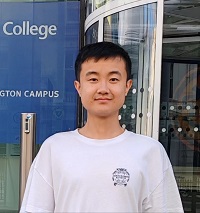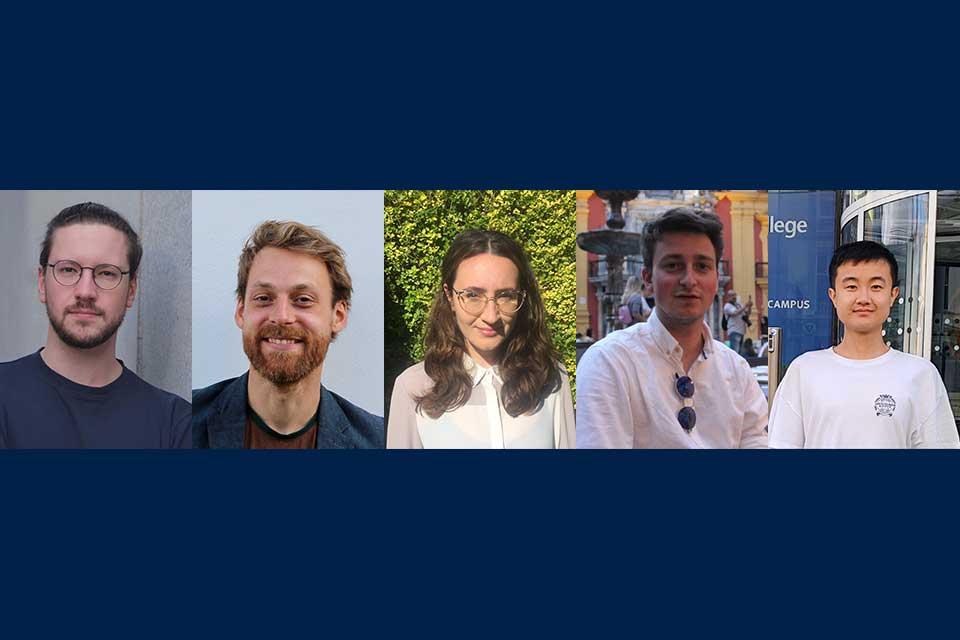In October 2022 the University of Oxford became one of nine leading research universities around the world selected to deliver the Eric and Wendy Schmidt AI in Science Postdoctoral Fellowship programme. The Department of Physics welcomed three of the ten fellows recruited to Oxford in 2023 and this year, five of the further 15 fellows are joining them in the department.
The Schmidt AI in Science Postdoctoral Fellowship, a programme of Schmidt Sciences, aims to accelerate the next scientific revolution by supporting talented postdoctoral researchers to apply AI techniques across the natural sciences, engineering and mathematical sciences. This initiative adds to Schmidt Sciences’ existing philanthropic efforts to support the development and application of AI in innovative ways.
The programme is cross-disciplinary which gives it the ability to bring together different parts of the AI landscape in novel ways. Another key element of the AI in Science programme is the training aspect, providing fellows with all they need as non-AI specialists to use AI in their respective research fields. In addition, the Eric and Wendy Schmidt AI in Science Postdoctoral Fellows have the opportunity of becoming Associate Research Fellows at the University’s newest College: Reuben College. Founded in 2019, Reuben College aspires to create a community of scholars embracing opportunities for interdisciplinary collaboration, and developing initiatives to generate wider impacts and positive benefits from research, entrepreneurship and public engagement.
Professor Jim Naismith, Head of Division for the Mathematical, Physical and Life Sciences, said: 'Oxford stands at the forefront of AI research, and witnessing the transformative impact of the Schmidt AI in Science program on researchers within the MPLS Division is truly inspiring. It's remarkable to see how AI is envisioned to address a vast array of challenges, igniting imaginations and propelling innovation forward. We extend our heartfelt gratitude to Schmidt Sciences for their invaluable support and vision in making this pioneering program possible.'
Meet the Physics fellows
 Micah Bowles: ‘Robust multimodal galaxy embeddings’
Micah Bowles: ‘Robust multimodal galaxy embeddings’
To understand the evolution of galaxies, astronomers study their characteristic features (eg spiral arms). Machine learning has been used successfully to retrieve certain properties from millions of galaxies! To retrieve other properties, new models must be trained which can be costly and time-consuming. This project will research the application of a new class of AI models trained on different observations of the same objects, giving the resulting model the ability to identify a broader range of characteristics.
 Milan Klöwer: ‘Climate predictions of precipitation probabilities with online learning’
Milan Klöwer: ‘Climate predictions of precipitation probabilities with online learning’
Climate models provide crucial information for climate change mitigation and adaptation, but they also lack accuracy with respect to many atmospheric variables. Correctly predicting precipitation changes is enormously important, as the associated extreme events (droughts and floods) have large socio-economic impacts. This project aims to build a physics-based atmospheric model that also learns automatically from decades of observational precipitation data, demonstrating how online machine learning can improve simulated precipitation.
 Laura Mansfield: ‘Developing trustworthy machine learning parameterisations with uncertainty quantification for climate models’
Laura Mansfield: ‘Developing trustworthy machine learning parameterisations with uncertainty quantification for climate models’
In climate science, a key area of interest is the application of machine learning to subgrid-scale modelling or ‘parameterisations’. Traditional physics-based parameterisations often rely on assumptions and can introduce errors and computational bottlenecks. Machine learning approaches have been explored, but these introduce a source of uncertainty that must be thoroughly understood. This research aims to quantify uncertainties arising from multiple sources with the ultimate aim of revolutionising the next generation of climate models.
 Brian Moser: ‘Probing the Higgs potential with graph neural networks’
Brian Moser: ‘Probing the Higgs potential with graph neural networks’
Measuring the Higgs boson’s properties is of great importance for particle physics. Its most crucial unobserved property is that it should interact with itself, which involves searching for the incredibly rare case of a single Higgs boson splitting into two Higgs bosons. Graph Neural Networks will be used for the first time to separate this small signal from a multitude of background processes, paving the way towards measuring the Higgs boson self-interaction.
 Jinzhao Sun: ‘Learning ground-state properties of quantum materials using neural network states’
Jinzhao Sun: ‘Learning ground-state properties of quantum materials using neural network states’
The interesting behaviours exhibited by new quantum materials are difficult to simulate accurately using conventional methods because of their complex interactions. Neural network representation of quantum states is promising in solving quantum problems. This project will apply quantum-inspired neural networks and quantum machine learning to efficiently capture the complex correlations in materials, which will then be applied to find the most stable configuration of quantum materials.

